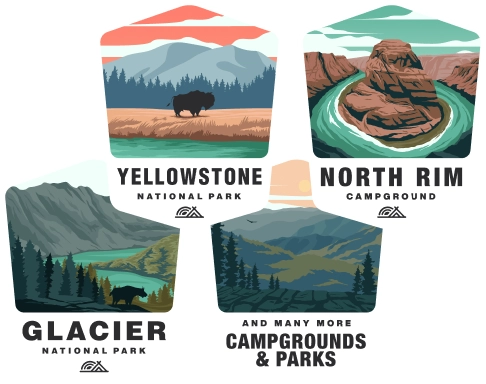Camping at Remote Sites 32R - 35R
General Information
Lincoln Pond Campground offers a variety of camping experiences as a popular destination in New York's Adirondack Park. Among its offerings are remote campsites, which typically provide a more secluded experience. In the campground, sites numbered 32R to 35R are designated as remote or primitive sites. These sites often offer basic amenities and are reachable by a different means than the standard drive-up campsites.
Access to the Sites
Remote campsites, including 32R through 35R, might not be accessible by car. Campers may need to hike, canoe, or kayak to reach their assigned site. This often means that the approach to these sites requires more effort and planning, as all supplies need to be transported by hand or boat.
Amenities
- Basic Amenities: The remote sites are known for their minimalistic nature, providing a more rustic experience. These may include a fire ring, a primitive toilet, and possibly a picnic table.
- Water Source: Campers usually need to bring in their drinking water or have the means to purify water from a nearby source like Lincoln Pond.
- Waste Disposal: There won't be traditional restroom facilities available. Campers must follow Leave No Trace principles, which could include burying human waste or packing out toilet paper.
- Trash: These sites do not have trash pickup, so campers are responsible for carrying out all their waste, following a "pack it in, pack it out" philosophy.
Reservations and Permissions
Campers often need to reserve these sites in advance, especially during peak seasons when demand is high. It is important to check the reservation system for availability and any restrictions or permits required. At times, there could be limits on the number of nights you can camp or the number of people per site.
Safety and Wildlife
Remote site campers must be prepared for encounters with wildlife and changing weather conditions. Proper storage of food and scented items is essential to prevent attracting bears and other animals. Safety gear like a first aid kit, a means to purify water, and navigational tools are also important.
Environmental Impact and Regulations
The campground may have specific rules to minimize human impact on these pristine areas. This includes restrictions on fires, cutting of vegetation, and use of soaps or chemicals in natural water sources.
Specific Information and Updates
For the most current and specific information, including updates on seasonal changes, closures, or particular nuances of remote sites 32R through 35R, it is always best to contact the facility directly or visit their official website. Campground staff can offer invaluable advice and ensure that you're up to date on all regulations and conditions before your trip.
